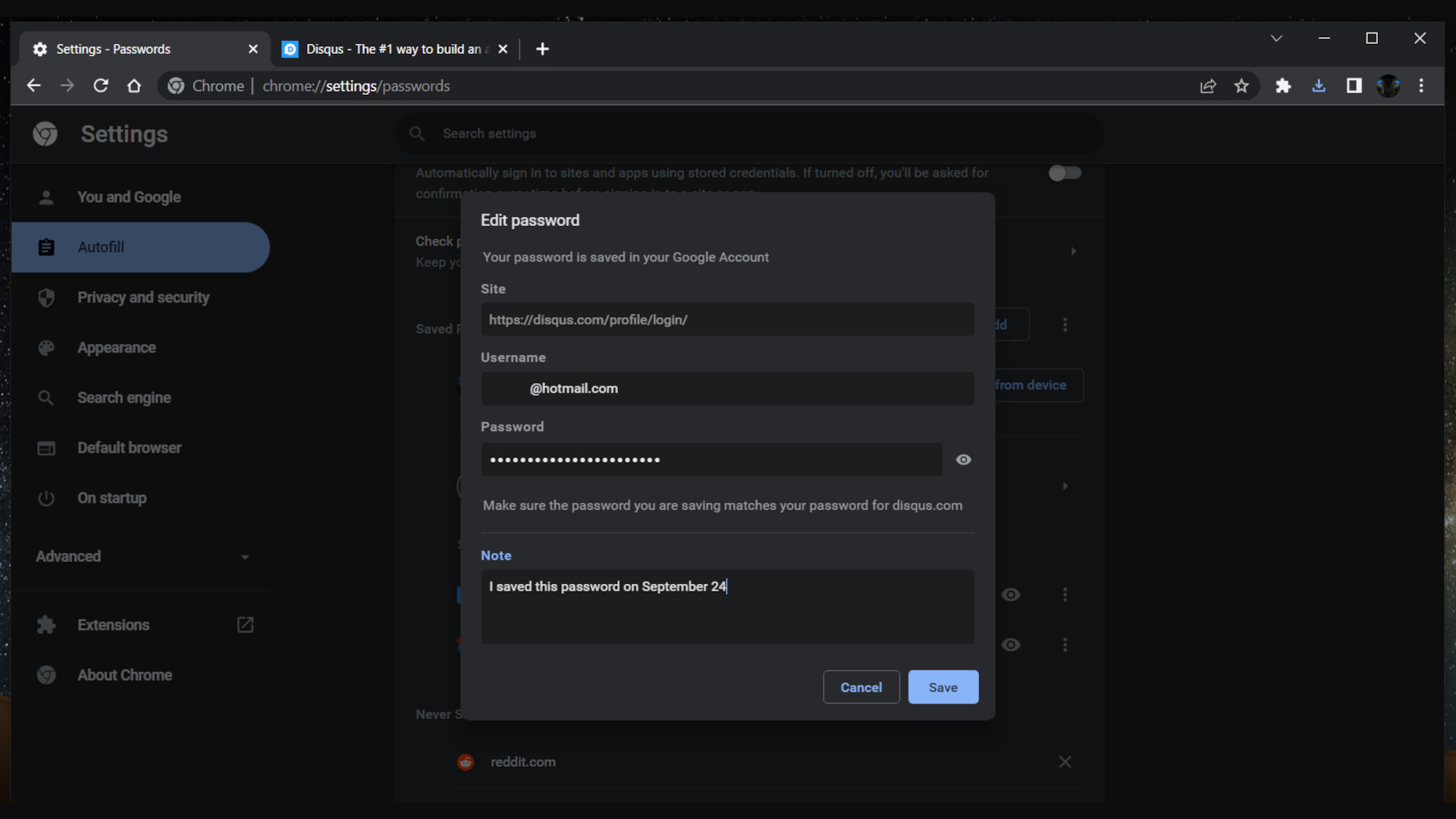Chrome is making it easier to remember passwords and sensitive information
Leave yourself a little message

Google is developing a feature within the Chrome password manager that not only allows you to manually save passwords, but also add any useful notes that you would otherwise need to save elsewhere.
This was discovered by Reddit user u/Leopeva64-2 who notes that the feature is currently live within Chrome Canary version 101, the version of the Chrome browser used for beta testing new features before they get released onto the public build.
Manually adding passwords will give you better control over the saved information currently stored in the Google Chrome password manager, preventing you from having to visit every website and load your details in to be saved. This should also make it easier to clean up errors and situations where multiple passwords are saved with no other sign-in information, such as a username or email address.

It's unlikely you would need to save any password hints in the notes space, as you can simply unhide your password by selecting the eye icon next to it. But this could be useful for saving the answers to security questions, or even the date you signed up and last used the service, if you like to keep your open accounts to a minimum.
Concern was also raised on the same Reddit thread regarding encryption, though it's likely that anything saved within the notes field will be protected along with the actual passwords themselves.
Given most other password management services also encrypt all the information saved alongside the actual passwords, it would be unusual for Google to overlook this, but we won't know for sure until the feature is released to the general public.
As Neowin mentions in its own report, this is a feature that could also roll out to the Microsoft Edge web browser, given it's also based on Chromium. But it's early days for that, and we can't find anything similar to this feature currently being tested within the Microsoft Edge Insider channels.
Are you a pro? Subscribe to our newsletter
Sign up to the TechRadar Pro newsletter to get all the top news, opinion, features and guidance your business needs to succeed!
It has a niche use, but its implementation could allow you to save small nuggets of useful information that are specific to each website you visit, such as payment information or the expiry date on your cards. Given this feature is currently being trialed, there's a chance it might never make it into the public version of the Chrome browser, which would be a real shame.
Analysis: What's the risk?
Any discussion about saving your passwords or private information online is going to cause some concern, but Chrome already has a lot of features that could put your mind at ease. For one, the Chrome password manager can prompt you if a password is weak or appeared in a data breach online.
To check your passwords, users just need to click on the key icon that appears under your profile. or you can manually type 'chrome://settings/passwords' in your address bar. This will also tell you if any of your passwords need to be updated because they've been compromised, though you'll still need to visit every site that the password/email address combination was used on to change them.
If anything, this outlines the importance of having individual passwords for every account you open – and with all of the websites and applications available to us, that can be daunting without a password manager.
Still, if you're worried about saving any private information to your browser, you'll either need to use a more dedicated service such as LastPass, or simply do things the old-fashioned way and either memorize or jot down your information on paper.
- Here's our list of the best password recovery software around
Jess is a former TechRadar Computing writer, where she covered all aspects of Mac and PC hardware, including PC gaming and peripherals. She has been interviewed as an industry expert for the BBC, and while her educational background was in prosthetics and model-making, her true love is in tech and she has built numerous desktop computers over the last 10 years for gaming and content creation. Jess is now a journalist at The Verge.
